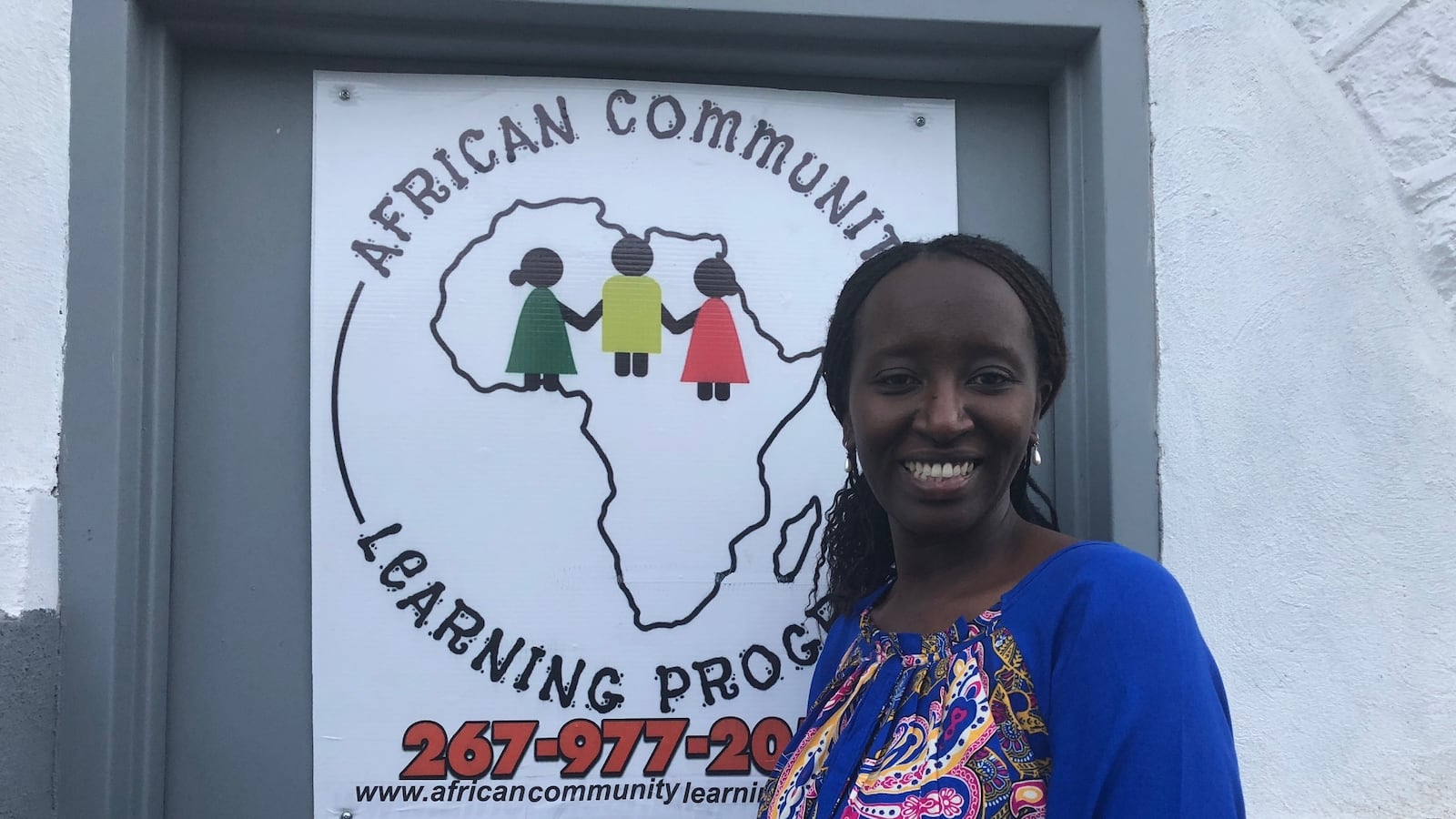This article was originally published in The Notebook. In August 2020, The Notebook became Chalkbeat Philadelphia.
While many people might view remodeling a basement as an opportunity to build a new TV room, extra bedroom or home office, Aminata Sy had a different vision for her West Philadelphia home.
She wanted to create a space to help African-born immigrants in Philadelphia — 7 percent of the city’s immigrant population — so she turned it into an after-school program for African students struggling in English-speaking schools.
Sy, who was born in the Democratic Republic of Congo, majors in international relations and minors in English at the University of Pennsylvania.
“I was thinking on a personal level how can I give back,” Sy said, “because I want my education to not just be something that I am learning and is in my brain. For me, that is useless. For me, education has to be something that is shared.”
Sy and her husband transformed their basement laundry room into the African Community Learning Program, where she and seven volunteers — students from Penn and Temple — help a dozen struggling students with their homework, language skills and cultural pride.
In her “Africa Curriculum,” Sy teaches students about the cultures and people from the continent. For example, during February, Black History Month, Sy had students make presentations about important living people who have a direct link to Africa. The subjects included Barack Obama, Trevor Noah and even Sy herself.
Another aspect of the curriculum: She and the volunteers switch roles, so the students can teach them. The students — from countries such as Senegal, Mali, Nigeria, Niger, Burkina Faso, Sudan and Mauritania — deliver insights into their own cultures while the adults sit back and learn.
“That’s just the center of the program, just trying to give them a sense of self. Tell them that their experiences matter. Their values matter and their stories matter,” said Hazim Hardeman, the program’s volunteer secretary and also the first Rhodes Scholar who graduated from Temple University.
Though it has no official connection with the School District of Philadelphia, the African Community Learning Program offers extra support for African English language students, especially those who speak languages that are not very familiar to people in the United States.
About 850 African students live in the District, 596 of them English learners. The District has 57 bilingual counseling assistants, nine of whom provide support for African languages, Arabic, French, Wolof, Soninke, Pular and Fulani.
There’s also Language Line, a District service that offers live translations for parents and families in any language, and the District works closely with organizations such as the African Family and Health Organization, Sudanese Organization of Philadelphia, and AFRICOM.
But even with all that, African students still need one-on-one assistance.
In addition to the language barrier, African students can’t get the help they need at home because their parents may not have gone to school, or were educated in a system that doesn’t transfer to American school systems, Sy said.
That’s why Sy serves only students whose parents are originally from Africa, for now at least. She stressed that she’s not trying to exclude other students, but to serve “a need that is not being addressed,” one that she herself is very familiar with. When she arrived in the U.S. in 2001, she had to “relearn how to live in a new context.”
“They’re also learning to adapt to American culture,” Sy said. “So I thought it would be best to start with where I understand best myself.”
Adama Maiga, a fifth-grader at Henry C. Lea Elementary, the neighborhood school, said she used to get C’s on her report card because she couldn’t understand the work and her mother, Assantou Diarra, who came to the U.S. from Mali in 2005, was unable to help her.
Lea was one of the first places Sy promoted the after-school African Community Learning Program, since the school has a sizable contingent of African students. Adama’s mother found out about Sy’s program through the school’s bilingual counseling assistant and enrolled her daughter.
Adama said she now gets strictly A’s and B’s and praised Sy for helping her with her homework and making it “more funner.”
“I feel like when I didn’t come here I didn’t know anything,” she said “I was dumb and stupid. But since I’m coming here, I feel like I am smart, intelligent, generous and stuff like that.”
Diarra intends to keep Adama in the program.
“If she feels happy, I feel happy,” she said.


